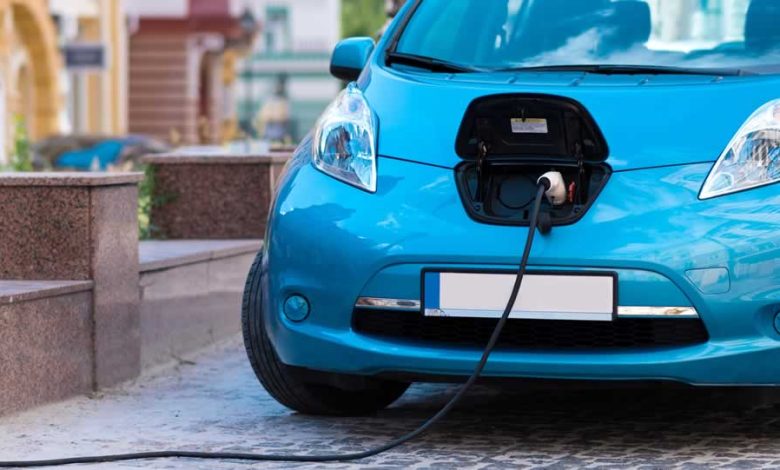Why Innovators and Investors, not Governments Should Lead EV Revolution

A popular misconception in many government policies is that restrictions and enforced bans can drive up the demand of alternative products even when the market is not incentivized.
One of the collective goals of modern governments is the long-term adoption of electric vehicles (EVs) to replace fossil fuel-powered vehicles. This is in tandem with the battle against climate change that aims at reducing carbon emissions. However, doing away with a system of transport that has existed for 100+ years is no easy fete.
Ethiopia is one of the countries that dedicated itself to the goal of transitioning to EVs. In February this year, the most populous country in the region banned imports of petrol and diesel cars, intending to slash reliance on fuel imports which cost the country US$ 7.6 billion last year. Over half of that fuel was used in fuel vehicles, and the country was banking on the ban triggering demand for EVs that would in turn create supply incentives.
In 2022, Ethiopia rolled out an ambitious EV adoption plan that would see 150,000 EVs on its roads by 2030. While this is a monumental leap compared to other countries in the region still lapping behind, Ethiopia’s abrupt ban on petrol vehicles was poised to bring about a slew of problems. Changes take time, especially for something as critical as transport. This is true even in a country with one of the lowest registered rates of car ownership in the world, and which says it has already surpassed, and raised, its initial goals of adding more EVs and electric buses over the last few years.
According to a report by Rest Of The World, Ethiopia’s EV adopters are grappling with infrastructural challenges that have made them sceptical as to whether it was a wise move to ban petrol cars. According to the report, the vast country has only 50 charging stations – of which, only four are owned by the government. Ethiopia also experiences frequent electricity outages, with the most recent and persistent of them occurring in March this year.
The limited number of charging stations complicates the adoption of EVs as it is not clear how the population will comfortably abandon fossil-fuel vehicles when the energy prospects for EVs are scanty. If anything, the demand for these vehicles with a reliable energy source will be heightened, and with the importation ban in place, Ethiopia could be glaring at a major smuggling operation that would block revenue from taxable cars illegally brought into the market.
The EV adopters have also lamented that there is a pressing shortage of mechanical skills and spare parts needed to repair their cars. EV models are still a new phenomenon in the local market and there is barely any knowledge in handling their hitches. This shows that the government’s directive did not take into account that such problems could arise and make it harder for people to transition. An individual has an array of considerations to consider before buying a product – some of which government officials may overlook.
For this reasons, the ban on imported fossil-fuel vehicles was ill-informed because governments rarely intervene positively within the free market. Economic transactions do not take place on a cardboard where predictions can be made with ease, or where slight tweaks and imposition of policy can cause tectonic shifts in individuals’ decisions. Markets and individual perceptions will always resist ironclad and indifferent policies made in government boardrooms.
In countries like Kenya and Rwanda, there is a steady rise in private sector investors like Roam, BasiGo, Spiro, and most recently – NETA has seen positive growth in EV assembly and manufacturing. By fostering partnerships and delivering incentives to sector players like ride-hailing companies, public transport vehicles, and logistics companies – EV adoption has been normalized and the reaction from the public has been impressive. They still have a long way to go, but the organic growth means that car buyers are more likely to make informed decisions about purchasing EVs, as opposed to being forced to.
The governments in these countries have not sought to enforce demand of EVs but have been working closely with these private sector players to plan how charging stations shall be set up across the country, as well as cutting taxes on relevant imports that will subsidize the cost for local consumers. Innovators have also sought to improve the quality of their EVs to suit the conditions unique to local markets.
Most notably, heavy factors like electricity production are at the forefront of the agendas listed by the Kenyan government. Its focus on ramping up Geothermal power production at the Rift Valley is intended to prevent electricity shortfalls that are likely to hinder EV adoption in the long-term.
The urgency of combating climate change should not deceive governments that they can overturn attitudes within magically short periods. In any case, mishandled government policies only reinforce the detractors of the EV transition. Incentives should organically sprout in the market. Governments should ideally focus on attracting private investors and local innovators to lead the charge in the EV revolution, and allowing the free market to evolve organically, obeying the balance of demand and supply.
See Also:
Uganda Reinstates 25% Import Duty on Electric Vehicles



